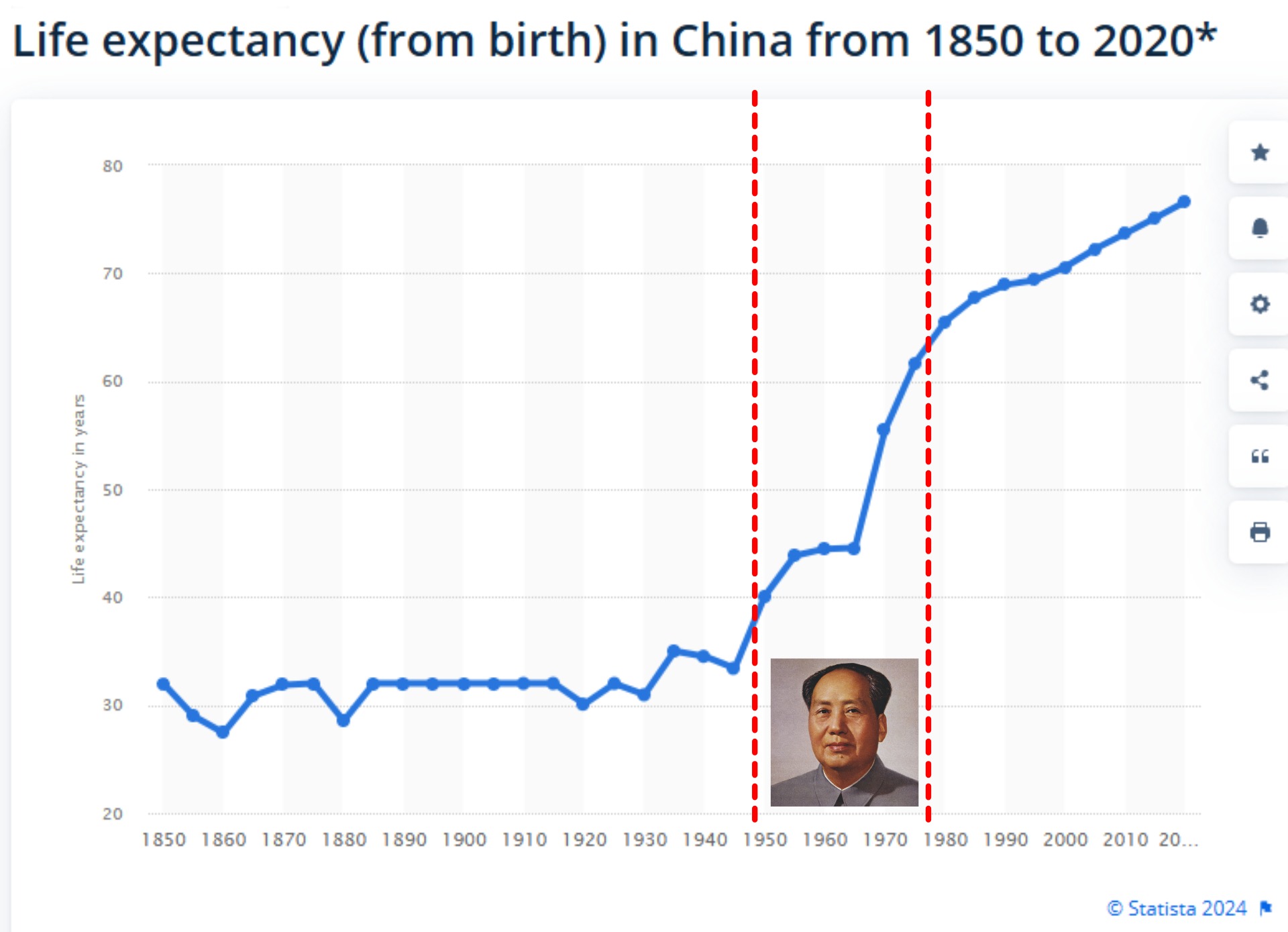this post was submitted on 05 Oct 2024
148 points (95.7% liked)
China
2032 readers
31 users here now
Discuss anything related to China.
Community Rules:
0: Taiwan, Xizang (Tibet), Xinjiang, and Hong Kong are all part of China.
1: Don't go off topic.
2: Be Comradely.
3: Don't spread misinformation or bigotry.
讨论中国的地方。
社区规则:
零、台湾、西藏、新疆、和香港都是中国的一部分。
一、不要跑题。
二、友善对待同志。
三、不要传播谣言或偏执思想。
founded 4 years ago
MODERATORS
you are viewing a single comment's thread
view the rest of the comments
view the rest of the comments

They are comparing post-independence India and China. They say that while China has done better than India in most cases, China has had a major famine while India has had none. This is the part that talks about democracy:
Seems to me they have no idea how China is or was actually run and they just assumed it to be this hyper-centralized top-down system when that could not be further from the truth - local governments and communal councils have far more power over the day to day affairs of a community than the central government does, and in the Mao era this was even more the case simply due to the logistical limitations of the time. The majority of the local party officials in any given locality were and are people from that very same locality.
Leaving that aside i like how their argument is purely theoretical, as in there is zero actual evidence given to support it. In fact we have ample evidence to the contrary, of people dying constantly and in great numbers of malnutrition and preventable diseases caused by living in complete squalor and poverty in so-called "democratic" countries with "free and adversarial media" all across the "third world". It turns out that when the people dying are the permanent underclass, and so long as the affluent are still doing fine, nobody actually pays attention, including the vaunted free media. And neither are the people living and dying in those conditions able to vote their way out of their misery because that would take changing the entire system.
So which country is actually more democratic? The one where you can't actually change anything substantial no matter how you vote and where no matter how much you exercise your "free speech" nothing ever changes because the ruling class doesn't give a shit about you, and the same moneyed interests that the government actually works for also control the media? Or a country where massive and unprecedented changes in human history have occurred in less than the span of one human life and where the government is vastly more responsive to the needs, concerns and frustrations of its people than any "liberal democracy"?
The reason why they can say "India has had no major famine" is because India has been in a state of constant semi-famine for a certain class of people and for certain regions. When poor rural communities and slums are in a state of permanent poverty and as a result have much higher rates of malnutrition and much lower life expectancy they don't call that a famine, that's just "the default", that's just normal. In China it was noticeable because they made sure that it would not be their normal going forward. It's easy to not have famines when you don't call them famines, when a part of the population is still well off and you can pretend that everything is fine even while millions live and die in absolute poverty.
So yeah, the idea that "adversarial democracy" and "free media" prevent famines is nice in theory, that's how you'd expect these systems to work if you have been sold on liberalism. It's the idea that these systems are the checks and balances on bad actors, and they ensure that bad policies are automatically corrected. This is exactly like believing that the free market just magically regulates itself to achieve the optimal outcome for society. Sadly, observed reality doesn't conform to that idealized fairy tale.
As yogthos once said for these people democracy is a procedural thing. Whether how closely the outcome approximates the will of the people is inconsequential. It is all about multi party elections and ballots.
India is below DPRK in Global Hunger Index. DPRK for context is the most besieged country in the world with a geography that is inhospitable to agriculture. Malnutrition in India is such a problem that it has its own wikipedia article and the government has stopped publishing the stats for it (democracy moment). I walk around where I live and I see so many stunted adults and children. It's really sad. China on the other hand is one of the most well fed countries in the world, which is crazy considering their size and their non-colonizer origins.
MLs so criticial of CR should really visit India to see a timeline without it.